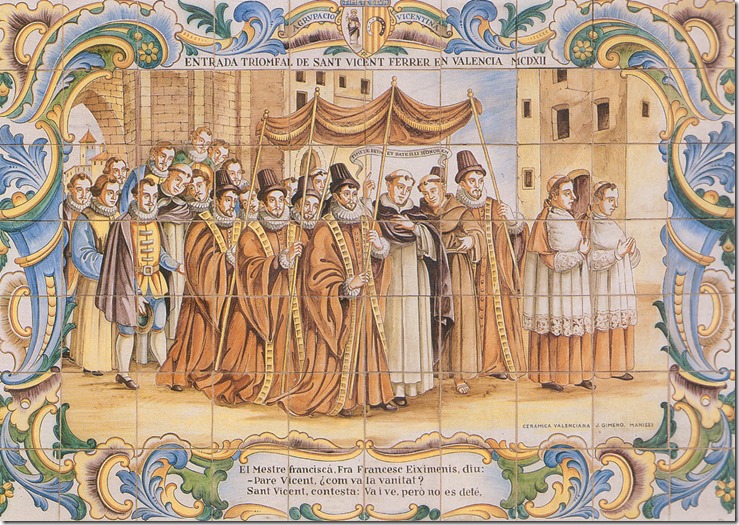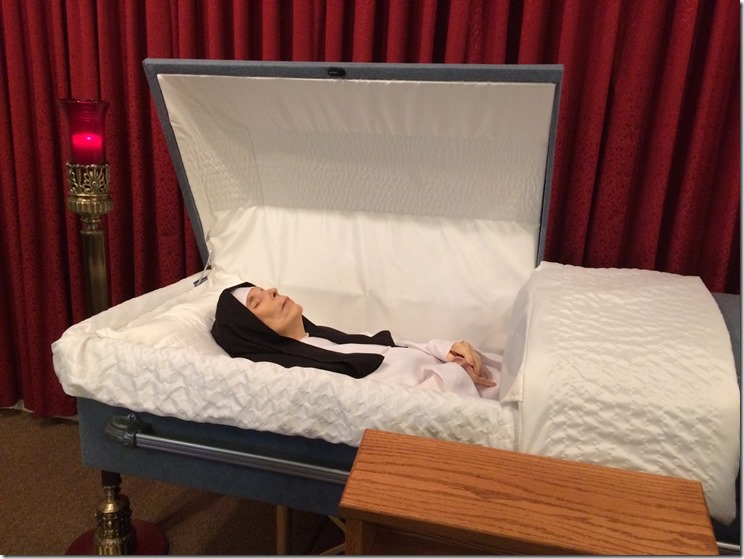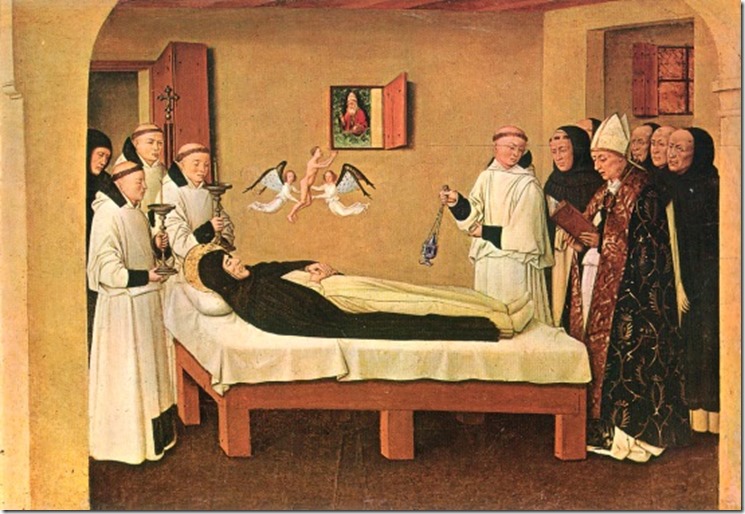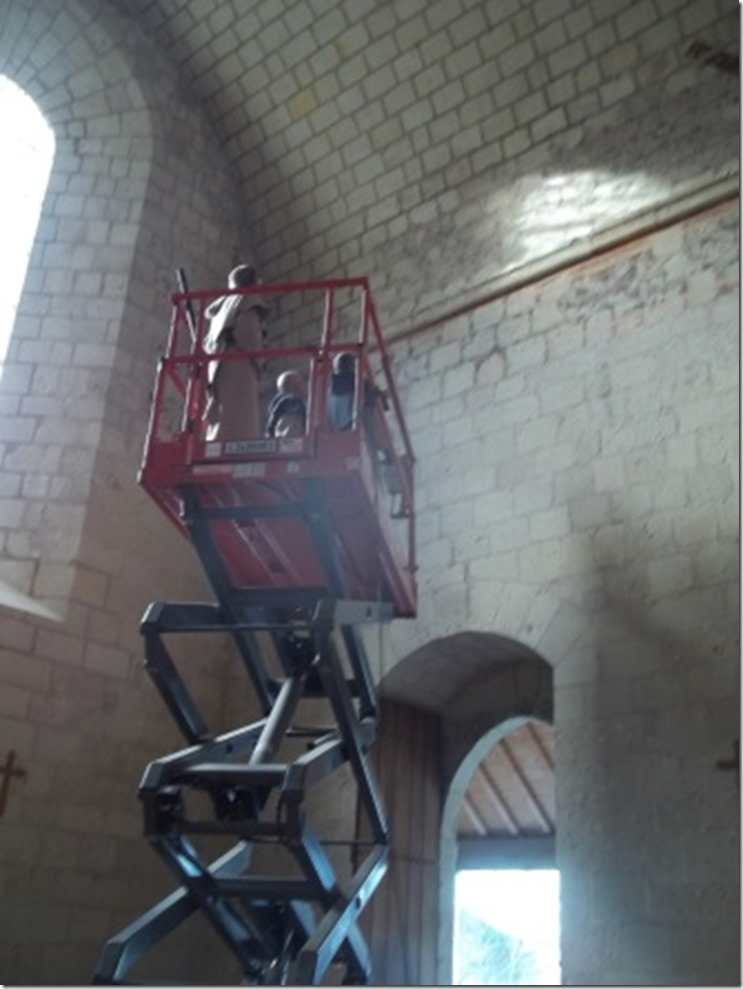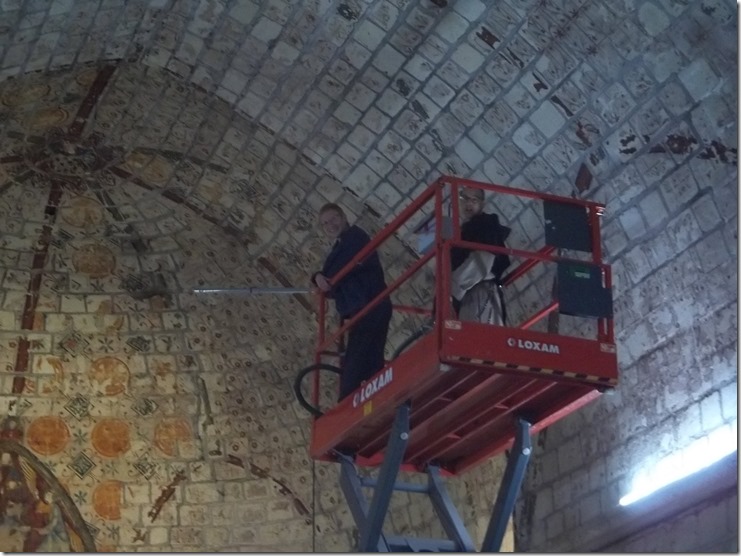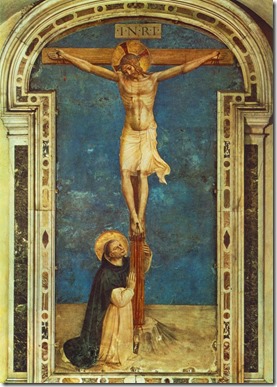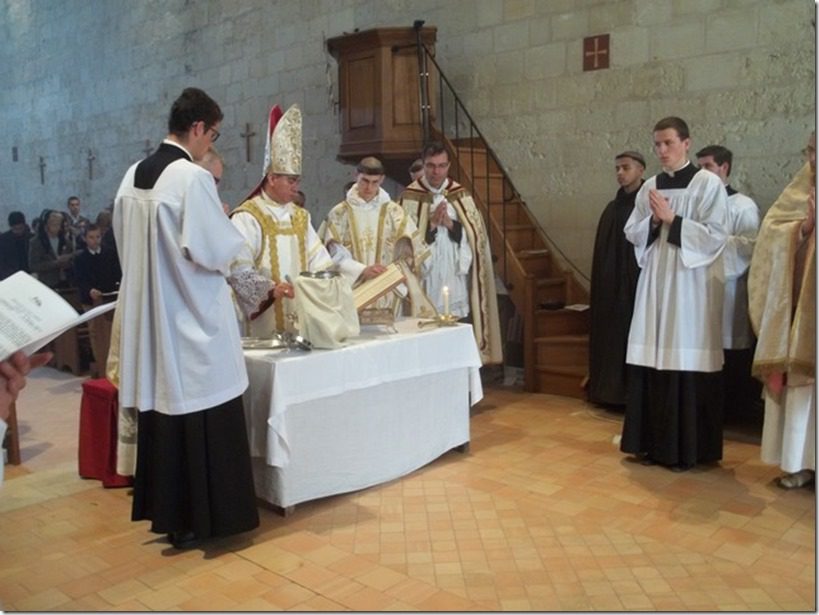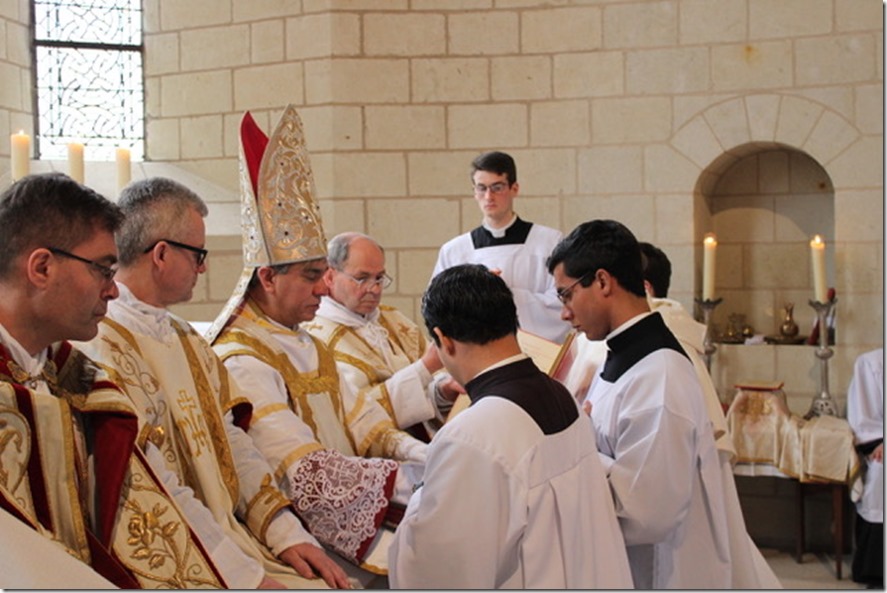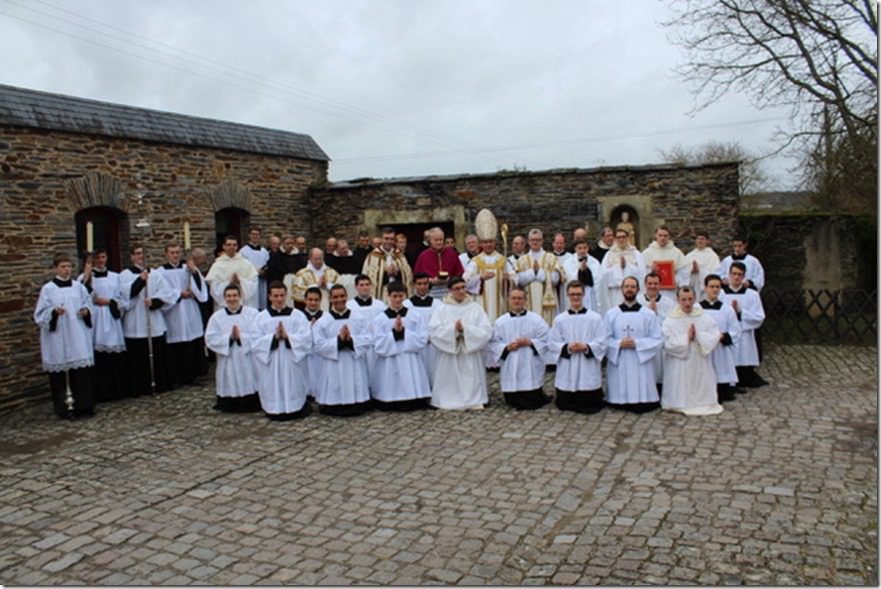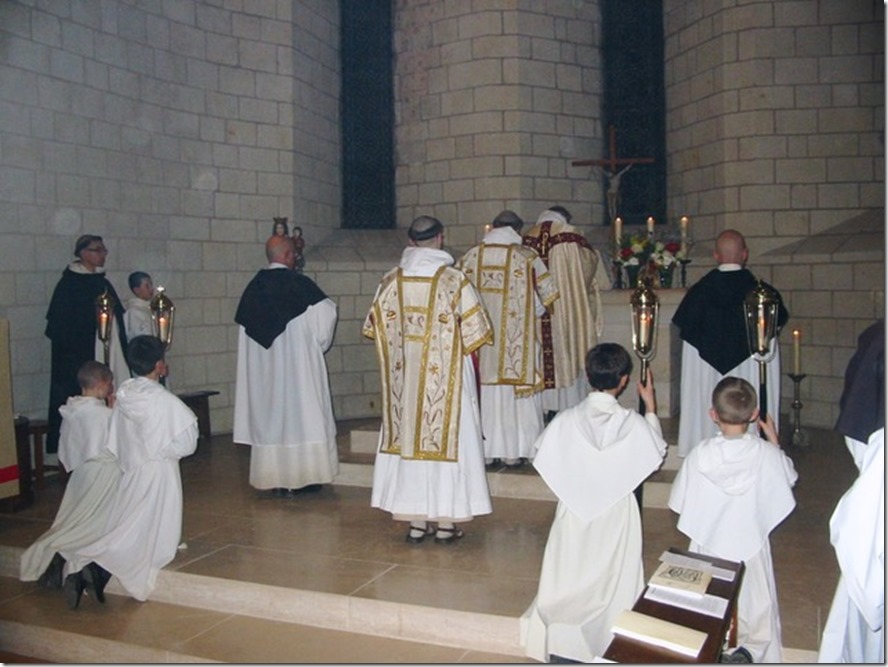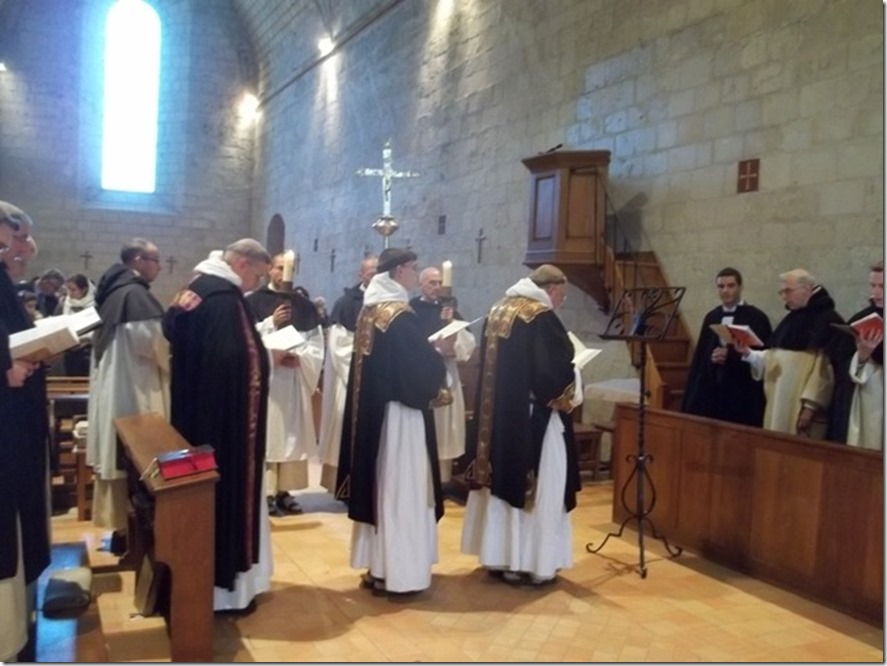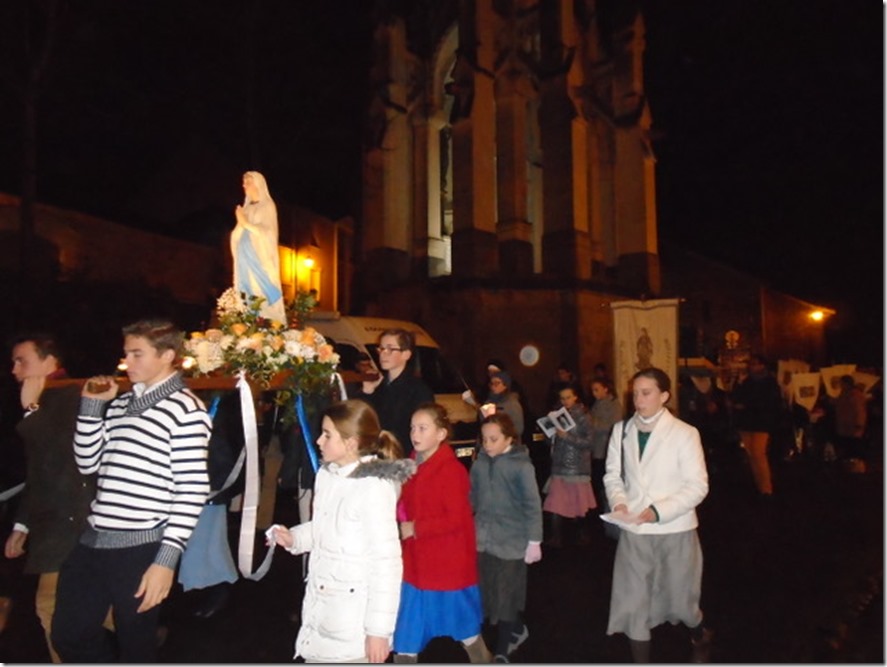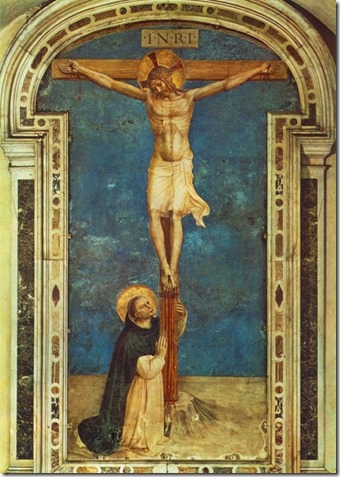PERSONAL CONSECRATION TO THE SACRED HEART OF JESUS
Imprimatur of Bp J.C. Chamont Auxiliary Bishop of Montreal
November 16, 1940
1. Importance of the Devotion to the Sacred Heart
Three Classes of Souls
Rest a little, Christian soul, from the bustle of life, and give ear to the words of love which the Heart of Jesus speaks to you, that God of love and mercy whose only care is for your good.
Tell Me, are you happy? Are you contented? Is your heart at peace? Do you enjoy the unruffled depths of ocean?
Perhaps you are to be numbered among those unhappy souls who weep because at every step they take they find themselves in sin: who, like doves with their wings clogged with mud, fail to soar up to the clear blue sky. Or perhaps you are making your way but slowly along the steep and narrow path of virtue, weighed down by cold torpor or that wasting disease of the spirit called tepidity. Or perhaps you are one of those who are neither sinners nor tepid, but whose downcast features reflect discouragement within because, like eagles with clipped wings, they spend their whole life rising into the air only to fall back to earth discouraged, or, like travelers journeying along a boundless stretch of shifting sands, they lose heart at the sight of such little progress achieved after so many years of weary travel. What compassion I have for all these poor souls! And how many indeed they are!
A Great Remedy
But just listen now to those consoling words I have confided to My most intimate friends. For I desire them to be, as it were, silvered conduits or electric cables carrying the grace and light of My loving Heart out to the world.
“The treasures of grace and blessings which this Sacred Heart contains are infinite. I do not know of any devotion in the spiritual life better suited to raise a soul in a short time to the highest perfection and to make it taste the real sweetness to be found in the service of Jesus Christ 1.”
“I do not know, my dear child, if you understand the meaning of devotion to the Sacred
Heart of Our Lord Jesus Christ, of which I speak to you. It produces fruit and a great change in all those who consecrate themselves to it and practice it with fervor 2.”
By means of this devotion to the Sacred Heart, people in the world will find all the helps necessary to their state of life, peace in their families, relief in their labors, the blessing of heaven on all their undertakings, consolation in their troubles; and it is precisely in this Sacred Heart that they will find a haven of refuge during their whole life and particularly at the hour of death.
“How sweet it is to die after having had a tender and constant devotion to the Sacred Heart of Jesus! 3”
“See to it, above all, that religious embrace this devotion, for they will derive from it such help that no other means will be necessary to reestablish primitive fervor and the most exact observance in the least observant communities, and to raise to the summit of perfection those communities which live in the most perfect observance 4.”
“One Friday, during Holy Communion, He spoke these words to His unworthy servant, if she is not mistaken: ‘I promise thee in the excessive mercy of My Heart that its all-powerful love will grant to all those who go to Communion on the First Fridays of nine consecutive months the grace of final repentance; they shall not die in its disfavor nor without receiving their sacraments, My Divine Heart being their assured refuge at that last moment’ 5.”
“Our glorious protector, St. Michael, accompanied by a countless host of angelic spirits, assured me anew that the cause of the Sacred Heart was entrusted to him as one of the most important enterprises for the glory of God and the utility of the Church that has ever taken place in the world during the whole course of the centuries. This mystery hidden for centuries, this sacrament manifested anew to the world, this design from all eternity in favor of all people, now revealed to the Church, is, so to speak, one of those which arrest the attention of God, ever careful for our good and the glory of the Savior6.”
“I seem to see interiorly that light, the Sacred Heart of Jesus, that adorable sun which sheds down its rays on earth sparingly at first, then in greater abundance, and finally illuminating with them the whole earth. And He said to me: ‘By the splendor of this light peoples and nations will be illuminated, and by its heat they will be made warm.’ 7”
Tell me now, My child, if, after having read these lines, you do not feel the persuasion coming over you that devotion to the Sacred Heart is something really extraordinary in the world. Yes, it is, indeed, and if you still have any lingering doubts, then make a careful study of the question for yourself and you will soon gain conviction. It is this personal conviction I desire in all My faithful, most of all in My priests and religious: not that they should believe just because they have heard of it, but rather that they should discover it from personal experience. By this means alone will they become convinced, and only they who are convinced will do great things. If only you were one of these, convinced through and through of the power and greatness of My Heart!
Two Kinds of Devotion
My most precious gems lie hidden at the bottom of the coffer, because there are many who have not yet noticed them. This divine devotion is like a vein of gold running through the field of the Church. Those layers of the ground which are usually exploited lie on the surface and can thus be easily discovered and turned to advantage. For example, who is unaware of the value of Holy Communion on the First Fridays of the month, or the value of the consecration of the family to the Sacred Heart of Jesus? Or who has not from time to time assisted at some feast in My honor? Or who has not become a member of some confraternity and performed its simple devotional exercises? All these are like travelers who pass over a vein of gold, stir up the earth a little, gather a few grains of the precious metal, and then continue on their way. It is only the few who set themselves to delve deeply into the mine; only the few become miners by profession.
2. Consecration
CONSECRATION is the fundamental practice of devotion to My Sacred Heart. How often, though, it becomes a mere matter of routine! Many pious souls make their consecration every day, reciting it from their prayer books and yet, when all is said and done, they are not really consecrated; they do not make the consecration, but merely recite it; they are reciters of consecrations.
Listen, then, and I shall tell you in what the full consecration consists, as I have explained it Myself to My most intimate friends, and as they have taught it in their writings and confirmed it by their example.
a) A Pact
The consecration can be reduced to a pact, in the sense in which I proposed it to My first apostle in Spain, Bernardo de Hoyos, and previously in similar terms to St. Margaret Mary: “Take care of My honor and My interests, and My Heart will make this pact with you, too.” As absolute Lord I could indeed demand this without submitting to any conditions; but I prefer to make a friendly bargain with My children.
Will you not then conclude this pact with Me? Have no fear lest you may be the loser by it. I am so kind and beneficent in My dealings with creatures that one would think I was a dupe. Moreover, it is not a pact which will bind you under sin of any sort, for I do not like obligations which stifle!
I want love, peace and generosity not fear or anguish of conscience.
The pact contains two clauses, one binding Me, the other binding you. My part is to care for you and your interests, and your part is to care for Me and Mine. Is that not a beautiful pact?
b) First Part of the Consecration
Let us begin with My part. I shall take care of you and your interests. For that, it is necessary for you to leave absolutely everything in the hands of My Divine Providence: your soul, your body, your life, your health, your family, your business, and in a word — everything. I wish to arrange all that concerns you according to My good pleasure, and for that I require a free hand. So, too, you must hand over to Me all the keys of your house, that I may come in and go out at will.
You must not be keeping an eye on Me and what I do, nor demand any account from Me, even though you may not perceive the reason for My actions in your affairs, and yes, even though at times this may seem to be to your detriment. If at times you may have to grope your way blindly on, then you will have the consolation of knowing that you are in safe hands.
When you hand everything over to My keeping, you must not want to have everything arranged according to your wishes; that would be imposing conditions on Me and seeking your own interests; but rather I must arrange everything in a way that seems best to Me as King and Lord. I must have complete liberty of action even though I may foresee that My plans will at times cause you pain.
You see only the present; but I see the future. You see, as it were, through a microscope, while I see through a powerful, long range telescope.
Hence solutions which seem very suitable for the present may turn out quite disastrous in the long run. There will be occasions, too, when I shall deliberately permit the upset of your plans in order to test your faith and trust, and to increase your merit.
I do not mean by all this, however, that you are to surrender yourself to a sort of fatalistic quietism and simply neglect all spiritual affairs. You must take as a fundamental guiding principle those words of the Gospel which read: “When you have done all you have been commanded to do, say, ‘We are useless servants. We have done no more than our duty.’”(Lk. 17:10).
In everything you must make just as much effort as if success depended on you alone, and then say to me with humble trust: “Most Sacred Heart of Jesus, in my weakness I have done all that I can; the rest depends on You. I leave it to Your Providence.” When you have prayed thus, set aside all uneasiness and enjoy the still peace of a lake on a quiet autumn evening.
* What is to be offered up?
As I have just said, you must hand over to Me everything with absolutely no exceptions. Those who make an exception trust Me little.
— Your soul
Place your soul in My Hands: your salvation, your degree of glory in Heaven, your progress in virtue, your faults, your passions, your wants, everything. There are persons who are always worried, fearful, and discouraged in the spiritual life. If this is the result of mortal sin, then it is as it should be. The state of mortal sin is indeed so wretched that no matter what the cost you must leave it, for it makes you My enemy. Make a big effort, come hurrying to Me with all speed, and I shall assist you. Go to confession often, every week if possible, for that is an excellent remedy. Moreover, if you have a sincere desire to amend your life, great faults are not an obstacle to consecrating yourself to Me. For the consecration itself will be a capital means of extricating yourself from that state.
There is another class of people who do not sin mortally, but nevertheless are always gloomy and downcast because they feel they are making no spiritual progress. Now, I do not approve of that. In this matter, too, one must do everything possible as far as human weakness allows, and leave the rest in My hands. Heaven is a beautiful garden which must be complete with every variety of plant. Not all can be cypresses or lilies or carnations. There must also be thyme!
Offer yourself then for this place. All this perturbation, those worries and anxieties, in persons who do not sin seriously proceed from their seeing their own honor more than Mine. Virtue and perfection have a double aspect: that of being for your own good, and that of being for Mine. You must strive after them earnestly but peacefully, because they are for My good. For have we not already agreed that you are to surrender all your interests, in so far as they are yours, to Me? For the rest, you must not forget that I shall accomplish the work of your perfection much better than you would yourself.
— Your body
I shall also take care of your health and life. These, too, you must entrust to Me. I know what is best for you; you do not. Take the ordinary means to preserve or restore your health. Lay aside all groundless fear and anxiety, and leave the rest to Me. Persuade yourself that it is not doctors or medicine alone that bring a cure for sickness, but it comes to you from My hands.
— Your family
Parents, wife and husband, children, brothers and sisters, relatives. There are persons who find no difficulty in offering themselves to Me but who balk at confiding to Me some member of their family for whom they have a special affection. As though I would simply abscond with everything that was entrusted to My Goodness! That is indeed a poor idea to entertain of Me.
These people say sometimes that they have no difficulty themselves in suffering, but that they cannot bear to see their loved ones suffer. They think that consecration to Me and immediate suffering for all those connected with them are one and the same thing. I wonder where they get that idea from? A genuine and sincere consecration has the effect of alleviating the crosses which all must carry in this world.
— Temporal goods
Possessions, business, career, occupation, employment, home. I do not require souls who love Me to give up all these things, unless I have called them to the religious life. On the contrary, they must take proper care of them since these goods constitute part of the obligation of their state. I only ask them to hand everything over to Me, to take every reasonable means to ensure success, and to leave the result to Me without worry or anxiety.
— Spiritual goods
You know that in every act of virtue you perform in the state of grace, and also in all the prayers which will be offered up for the repose of your soul after death, there is a certain portion which you can renounce in favor of others either living or dead. I want you to make Me a complete gift of this portion to distribute as I wish. I know better than you on which persons the establishment of My Kingdom depends most. I also know those who are in most need of help, and those in whom your merits will produce the best results. Thus I shall be enabled to lay this portion out to better advantage. This free gift of yours does not, of course, prevent you from offering up prayers for certain people as obedience, charity or piety may demand on occasion.
You must surrender to Me with full confidence everything you possess, for Me to dispose of as I wish; and although I do not wish you to make this consecration from motives of self- interest, yet you will find that on the whole your affairs will turn out better, although sometimes indeed I shall test your confidence and permit results to fall short of your expectations. Your concerns will prosper in proportion to the zeal you show in promoting My interests. The more you think of Me, the more will I think of you. The more you occupy yourself with My interests, the more will I occupy Myself with your interests. The greater care you take of My affairs, the greater shall I take of yours. But, My child, do try to be less self-interested. There are persons who think of nothing but themselves: their spiritual world is a planetary system in which they occupy the solar position; and everything else, including My interests, are minor planets circling around them. That is a bad astronomical system in which the ego is the hub of the universe.
c) Second Part of the Consecration
This now brings us to the second part of the consecration: “You will care for My honor and My interests.” That is the most important part for you, because it is, properly speaking, your side of the pact. The preceding was Mine and if I asked you to give Me everything, it was in order to get rid of any obstacle which might hinder the fulfillment of My part. Your side of the pact is the care of My spiritual interests. You must throw yourself, heart and soul, into the task of promoting these so that your zeal may be the gauge of your love.
Do you know what My interests are? I have only one: souls. They are My interests, My treasures, My love. I seek, as I told My servant Margaret, “to establish the Kingdom of My Love in all Hearts,” My Kingdom has not yet come. Externally it has spread to a certain extent among Catholic peoples, but that deep interior Kingdom by which My love and My wishes will be the true law and rule of conduct for souls has, alas, only spread but little in people’s hearts. It is not through lack of soil. Numerous souls are prepared for My Kingdom and their number goes on increasing from day to day. But there is a lack of apostles. Give me a heart magnetized by My Divine Heart and you will see how soon other souls will become magnetized in their turn.
Ways of Apostolate
How easy it is to be My apostle. No sex, no age, no state in life, is excluded. There are many ways of doing the work:
— Prayer
That is, to be constantly petitioning heaven for the spread of My Kingdom, to ask it of My Father, of Myself, of My holy Mother, of My saints; to ask in the church, at home, in the street, during your daily work: “Sacred Heart of Jesus, Thy Kingdom come.” That is the aspiration which must be on your lips the whole day long. Repeat it, then, twenty, fifty, a hundred, two hundred times a day until it has become a habit with you. Seek out ways and means of keeping it before your mind. Who cannot be an apostle in this way? How really wonderful is this apostolate of ejaculatory prayers!
Give me a number of souls constantly shooting these little arrows up to heaven and tell Me if they will not meet with success! It is the little droplets of water which evaporate, go up into the air, form the clouds in the sky and then pour down again as the rain fertilizing the earth.
— Sacrifice
In the first place the passive sacrifice of acceptance. How many inconveniences, troubles and sorrows — sometimes small, sometimes great — come your way every day as they came also to Me, to My holy Mother, and to My saints.
If you could bear all this in silence, with patience, even with joy if possible, and offer it all up that I may reign, what a rich apostolate you would be practicing. The Cross is of supreme value: that is why it costs so much. Alas! How many crosses are wasted by people, and they are such precious gems. Then, there is the active sacrifice of self-denial. Try to acquire the habit of constantly overcoming yourself in small things. That is an excellent practice of the spiritual life. You are walking along the street and feel an urgent desire to have a look at such and such an object; then don’t look at it. You would like to taste such and such a delicacy; then don’t taste it. You are innocently accused of some small thing or other, and silence will not cause any evil of great moment; then keep silent. And so forth in similar cases, offering everything so that I may reign. If you feel urged to it by your generosity, you could also undertake even greater penances. You see what magnificent scope there is here for the apostolate! And an apostolate such as this works wonders.
— Daily Occupations
Some people say they cannot work for the Kingdom of Christ because they are always too busy; as if the very duties of their state and walk in life could not be converted into works of the apostolate by being accomplished well! Everything depends on the intention with which it is done. The very same piece of wood may be used as fuel for a fire, or as material for a sacred picture to be placed on the altar. During your daily round of work, strive to raise your eyes frequently to Me, to take pleasure in doing everything well for love of Me, so that your works may thus become golden coins which you set aside to My credit for the establishment of My kingdom on earth. You must also strive, but quietly, to become holier and holier every day. For the holier you are, the more efficacious will your works be for My glory.
— Exterior Apostolate
Sometimes you could further some enterprise of My Divine Heart as, for example, by recommending this or that practice of the devotion to those with whom you come into frequent contact. You might be able to persuade them to consecrate themselves to Me as you have done yourself. You may find it hard to talk about the subject; then why not pass on a pamphlet or little booklet? Try to spread such literature, either by distributing it yourself, or else by bringing it to the notice of others.
There are, then, countless ways possible of working for the spread of My Kingdom. If you remain inactive, then you cannot plead lack of equipment as an excuse. There is not a moment of the day in which you cannot do something that I may reign. It is very easy to be My apostle, and what a wonderful calling! Your whole life will be suffused and illuminated by a noble ideal!
Every work of the day will be stamped with the seal of apostleship, of the great apostleship of love. Every work will be converted into the gold of charity. What a consolation it will be at the hour of death to look back on five, ten, twenty years, or even more, of 365 days each, all spent in this way.
— Reparation
Do you wish to love Me really and truly? Love includes two things: procuring for loved ones all the good they lack, and freeing them from the evil which oppresses them. By means of the apostolate you procure Me for the good, you give Me souls; by reparation, you free Me from the evil, you wash My Divine Heart clear of the stains which have been inflicted on it by sin. Yes indeed, and injury may be removed by giving Me satisfaction. And how much could you not give Me, not only for your own sins, but also for the innumerable sins committed every day! I do not wish to burden you with many practices; the same prayers, sacrifices, daily works, and enthusiastic communication which are excellent ways of apostolate, are also very useful for reparation if done with this intention: “That You may reign, forgive us our trespasses – – that You may reign in reparation for the times we have offended You.” These are aspirations which should always be on our lips. My life had a two-fold purpose in the world: that of the Apostle to establish the Kingdom of God, and that of the Priest and Victim to expiate the sins of all. I should like you to fulfill both, too. By devotion to My Sacred Heart, I hope to make everyone into an exact copy of Myself, into a small Redeemer. What a sublime and wonderful thing for you!
3. Conclusion
Courage, then, and forward march! Thousands of others with the same flesh and blood as yours have done it. Choose a feast day, the first that comes. In the meantime, prepare yourself by quietly reading over these ideas. When the appointed day comes, go to confession, receive Holy Communion devoutly, and then make your consecration to Me; for you could not find a better moment than when I am in your heart. It is very necessary, though, that the consecration should be complete; that it should constitute a whole program of life. Hence, to make it easier for you, there is an Act of Consecration included below which contains everything essential. You are not bound to anything under pain of sin, even venial. I want a big heart, generosity and love. I only ask you to do what you can: and who is there who cannot do this?
And do not forget to renew it daily at home or in the church; for this daily renewal is very important. If you do not renew it, it will quickly slip from your mind; if you do renew it, then you will end up fulfilling it. Choose this holy way with decision and determination and you will soon feel a warm stream of new, life-giving blood flowing through your veins.
In conclusion, two pieces of advice. Firstly, do not forget Me in the Tabernacle. Honor paid to my image is certainly very pleasing to Me, but My own Person is of far more value than the image. The Eucharist is in a special manner My sacrament, for it is the sacrament of love.
I should like you to receive Me often, and, if possible, to pay Me visits during the day. You have no idea how I reward these friendly calls! Secondly, you might be able to find a little time during the course of the day to read and think over something about devotion to My Sacred Heart. Thus, day-by-day, the seeds of this divine devotion will be taking deeper root in your heart.
Act of Consecration
O QUEEN OF HEAVEN, most loving Mother, I (Name) though full of weakness and quite unworthy, yet encouraged by the gracious invitation of the Sacred Heart of Jesus, desire to consecrate myself entirely to Him. Conscious of my own unworthiness and inconstancy, I desire to offer everything through your maternal hands and with child-like trust in your loving care, and I look to you to assist me in the fulfillment of my resolutions.
MOST SACRED HEART OF JESUS, King of love and goodness, full of recognition for Your favors, freely and with all my soul do I accept this pact between You and me. I shall care for Your interests, and You will care for mine. You know indeed that You will gain less by it than 1. I wish everything of mine to be Yours, and place everything in Your hands: my soul, my eternal salvation, my freedom, my interior progress, my wants, my body, my life and my health. I place in your hands, the small number of my good works I am able to perform, or which others will offer up for me during my life or after my death, if they can be of service to You. I also place in your hands my family, my possessions, my work, so that You may be King of all that is mine and may dispose of everything according to Your pleasure. I, for my part, will do my best in all these affairs, but I shall rest contented with whatever Your loving Heart decides in my regard, difficult though it may be.
In return, I ask that the time still left to me not be wasted. I desire to do something big, something really big, that You may reign in the world; by my prayer and aspirations, by my daily tasks, by the suffering which I accept here and now, by my little acts of self-denial, I desire that every moment of my life may be spent in propagating and establishing Your divine Kingdom. May Your seal be on everything I do until the end of my allotted time, and then may my last breath be spent in words of love for Your most Sacred Heart.
Most Sacred Heart of Jesus, Thy Kingdom Come!
“May the God of peace, who brought up from the dead the great shepherd of the sheep by the Blood of the eternal covenant, Jesus Our Lord, furnish you with all that is good, that you may do His will. May He carry out in you what is pleasing to Him through Jesus Christ, to Whom be glory forever and ever. Amen.” (Heb.13:20-21)
Most Sacred Heart of Jesus, I place all my trust in You!
1 — Msgr. Gauthey: Vie et œuvres de S. Marguerite-Marie, Paris, 1920,
3rd ed., Vol.II, p. 627.
2 — Msgr. Gauthey, Ibid.., letter 50, p.324.
3 — Msgr. Gauthey, Ibid.., letter 141.
4 — Msgr. Gauthey, Ibid.., part 2, letter 141.
5 — Msgr. Gauthey, Ibid, letter 86, p. 397.
6 — Uriarte, Vida del P. Hogos. Part 3, ch.l, p.251, 2nd ed.
7 — Chasle: Sœur Marie du Divin Coeur, ch. XI, p.359.

